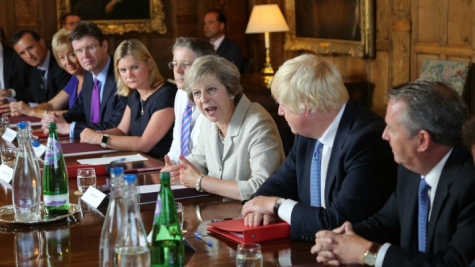Bearing the Cost of the Brexit Initiative

On January 17th, the world watched with open eyes as Prime Minister Theresa May outlined major concerns about Brexit in a conference held in London. In her speech, she announced and outlined some major requisites, including the finalized dealings with the European Union, while noting the continued motion to formally leave. Having made it known that the final deal was established, it would only be a matter of time before the House of Commons and the House of Lords would need to approve the plan for it to take effect. In upcoming plans, Britain would be sure to maintain an associate relationship without a direct linkage to the union. The hard means of exit from the EU were made clear by May as the U.K could not be “half-in, half out.”
It all began with people under the U.K. participating in referendum in which those of voting age could propose a new bill or law to be passed. On the 23rd of June, 2016, a wave of public opinion could not be ignored. With a majority vote, 52 percent of voters in the United Kingdom had opted to leave the European Union for immigration, economic, and other national-based interests. Major reasons for voters opting to leave the union were to fix the nation’s continued Great Recession in trying to close off Britain to foreigners and strengthen the workforce to pay off incurred debts. Other interests included a general desire to solidify a strictly British identity by essentially detaching the nation from Europe. Under the leadership of former Prime Minister David Cameron, the tide had irrevocably turned with the almost immediate shift of power. As Theresa May, the newly elected prime minister took office, her first responsibility would be to address the issue at hand. The options and course of action would not yet be clear, as May previously stated her interests to not pursue the Brexit movement in legislation like her predecessor. However, in acknowledging the resolve of the public by stating, “Brexit means Brexit,” the freshly appointed prime minister localized her Brexit interests to the reign of the people’s opinion.
With that being said, the movement was not yet official, as approval by administration would be a lengthy process. After that process, it is possible to consider a second referendum to be submitted to the people to solidify the conditions in place. Even so, the articles binding the E.U and Britain would have to be repealed before further negotiations can take place. The Lisbon Treaty, stating articles and conditions for E.U membership, would have to be unraveled at the seams to meet the interests of independence. While sharing his thoughts on the matter, the French President Francois Hollande stated, “The UK wants to leave and pay nothing. It’s not possible. There must be a threat, there must be a risk, there must be a price. Otherwise we will be in a negotiation that cannot end well.” With this, the uncertainty of delayed approval has yet to be cleared before the true nature of future negotiations can be evaluated. Although Brexit previously required the full approval of Parliament before proceeding with the motion, The House Of Commons authorized to disband the binding Lisbon Treaty on February 1st set the development one step further.
Despite the movement driven by actions relating to the public’s wishes, May’s personal and more focused goals included stronger control over immigration and law. The control over immigration seemed to have emerged from Europe’s free movement having been integrated into policies for a good number of years. With this in effect, citizens of Europe previously entered the country without major restriction, comparatively holding onto domestic travel policies despite entering a different country. The tight immigration would also be implemented to reaffirm and secure the rights of British citizens. However, despite major concern from the workforce demographic about European migration, the University College London concluded in a study that European migrants pay more in taxes than they take out in state benefits.
Nevertheless, this movement of foreign nationals in and out of the country was provided with ease as Europe and Britain acted under the “single market,” where lack of tariffs and restriction made accessibility a reality. As a result, the exit of the single market would be an inevitable consequence. Britain’s self reliance would be provided with financial afflictions and greater restrictions as new trade alliances would take time to establish.
To be sure that the exit from Britain is a steady and clean process, time will have to be the mediator with the government and people working hand in hand for the same cause.





